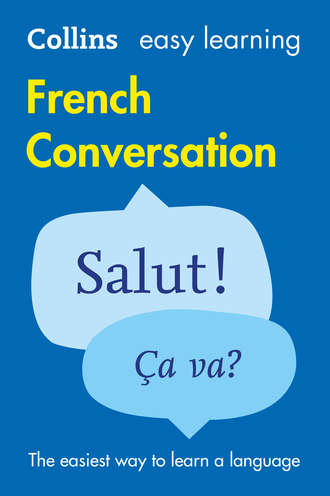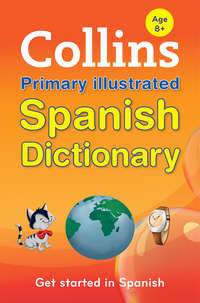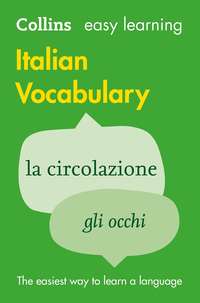
Полная версия
Easy Learning French Conversation
I intend to…
J’ai l’intention de l’inviter à prendre un verre.I intend to ask her out for a drink.J’ai l’intention d’aller les voir cet été.I intend to go and see them this summer.On a l’intention de l’inviter pendant les vacances.We intend to invite him during the holidays.Je compte régler ce problème le plus vite possible.I intend to sort out this problem as quickly as possible.Do you intend to…?
Est-ce que tu as l’intention d’aller au mariage d’Yves et Julie?Do you intend to go to Yves and Julie’s wedding?Est-ce que vous avez l’intention de les contacter?Do you intend to get in touch with them?Qu’est-ce que vous avez l’intention de dire?What do you intend to say?Tu comptes rester dans la région?Do you intend to stay in this area?Comment est-ce que tu comptes lui annoncer la nouvelle?How do you intend to tell him the news?MAKING ARRANGEMENTS
When making arrangements with someone, use Est-ce que ça vous va si…? or Est-ce que ça te va si…? to ask someone if something suits them. va comes from the verb aller. For more information on aller, see here.
Will it suit you if…?
Est-ce que ça te va si on dîne à neuf heures?Does it suit you if we have dinner at nine?Est-ce que ça vous va si je vous appelle la semaine prochaine?Will it suit you if I phone you next week?Ça t’irait comme arrangement?Would this arrangement suit you?To ask somebody if they would prefer something, use Est-ce que tu préférerais que…? or Est-ce que vous préféreriez que…? (Would you prefer it if…?), which comes from the verb préférer in the conditional. The conditional is very useful to make polite requests or offers. You can find out more about it here. For more information on -er verbs like préférer, see here.
Would you prefer it if…?
Est-ce que tu préférerais qu’on se donne rendez-vous en ville?Would you prefer it if we met in town?Est-ce que vous préféreriez qu’on se retrouve au restaurant?Would you prefer it if we met at the restaurant?Tu préférerais que je passe te chercher?Would you prefer it if I came to collect you?Is it better to…?
Est-ce qu’il vaut mieux inviter aussi les conjoints?Is it better to invite partners as well?Est-ce qu’il vaut mieux t’appeler le soir?Is it better to ring you in the evening?Est-ce qu’il vaut mieux vous prévenir avant de passer?Is it better to let you know before we call in?If you want to confirm an arrangement with somebody, you can use Est-ce qu’on est d’accord sur…? (Are we agreed on…?).
Are we agreed on…?
Est-ce qu’on est d’accord sur la date?Are we agreed on the date?Est-ce qu’on est d’accord sur le lieu du rendez-vous?Are we agreed on where to meet?Tu es d’accord?Do you agree?D’accord!Agreed!BON À SAVOIR!
D’accord is used to accept offers or to agree: On y va ensemble? – D’accord! (Shall we go together? – OK!).
SAYING WHAT YOU HAVE TO DO
When you want to say that you have to do something in French, you use il faut que (I have to) followed by the subjunctive. For more information on the subjunctive, see here.
I have to…
Il faut que je passe un coup de fil.I have to make a phone call.Il faut que je reste chez moi ce soir.I have to stay in tonight.Il faut qu’on y soit à huit heures pile.We have to be there at eight o’ clock sharp.Je suis obligé de sortir dîner avec mes collègues.I have to go out to dinner with my colleagues.Tu n’es pas obligé de loger à l’hôtel.You don’t have to stay at the hotel.BON À SAVOIR!
To say that you don’t have to do something, use je ne suis pas obligé de, not il ne faut pas que je which means I mustn’t.
To say what you have to do, you can also use je dois (I must) and then the verb in the infinitive. dois comes from devoir which you can find out about here.
I must…
Je dois finir avant cet après-midi.I must finish before this afternoon.Je dois les prévenir.I must warn them.Je dois le rembourser cette semaine.I must pay him back this week.Tu ne dois pas oublier de signer le contrat.You mustn’t forget to sign the contract.Vous ne devez en parler à personne.You mustn’t tell anyone.When you want to say that you should or ought to do something, use il faudrait que (I should) and then the verb in the subjunctive. Like faut, faudrait comes from the verb falloir, but faudrait is the conditional. To find out more about the conditional and the subjunctive, see here.
I should…
Il faudrait que j’appelle Anne.I should call Anne.Il faudrait que tu nous rendes visite.You should come and visit us.Il faudrait que je te donne mon numéro de portable.I should give you my mobile number.To ask what someone has to do or when, how, why or where they have to do it, put qu’ (what), quand (when), comment (how), pourquoi (why), où (where) and so on at the beginning of the sentence, before est-ce qu’il faut que (do you have to). Remember that the verb after il faut que is in the subjunctive. To find out more about the subjunctive, see here.
Do you have to…?
Est-ce qu’il faut que tu leur donnes une réponse aujourd’hui?Do you have to give them an answer today?Est-ce qu’il faut que tu partes tout de suite?Do you have to go right now?Est-ce qu’il faut amener quelque chose?Do we have to bring something?Qu’est-ce qu’il faut que tu fasses?What do you have to do?Quand est-ce qu’il faut que ce soit fini?When does it have to be finished?Où est-ce qu’il faut que je m’assoie?Where do I have to sit?LISTEN OUT FOR
Here are some key phrases which you are likely to hear in conversation.
Vous êtes déjà allé à Lille?Have you ever been to Lille?Vous restez combien de temps à Rouen?How long are you staying in Rouen?Ça vous plaît, Rouen?How do you like Rouen?Vous apprenez le français depuis combien de temps?How long have you been learning French?Ça va, tu arrives à suivre?Are you following the conversation?Vous parlez bien français.Your French is very good.Est-ce que je parle trop vite?Am I speaking too fast?Vous préférez que je parle anglais?Would you prefer it if I spoke English?Vous voulez que je répète?Would you like me to say it again?Vous voulez que je parle moins vite?Do you want me to speak more slowly?Tu peux me tutoyer.You can call me tu.On se tutoie?Shall we call each other tu?Vous êtes marié?Are you married?Vous avez des enfants?Have you got any children?Tu viens souvent ici?Do you come here often?Lifestyle Tips
• The polite you (vous) is used to address people whom you don’t know. It’s also a way of showing respect to someone who’s older than you, or, at work, to someone who’s higher up in the hierarchy. People who work together on a daily basis usually say tu to each other, (se tutoyer – to say tu to each other) but it is safer to wait a little before taking that step. Many people do not like to be addressed as vous, because they think it’s too formal. They will usually suggest you call them tu, saying tu peux me tutoyer or on peut se tutoyer. You can make the first move and ask On se tutoie?, if you think that the other person will be more comfortable using the tu form.
• When meeting someone for the first time, you usually shake hands (serrer la main à quelqu’un), whether it’s a man or a woman. In business relations, at business appointments or at negotiations, shaking hands is very common. Men who are on friendly terms usually shake hands, while women kiss on both cheeks (se faire la bise). Men also kiss female friends and in some cases other men, for instance when they belong to the same family. Bear in mind that habits may be different depending on where you are in France, which is why French people themselves often get confused; for instance, the number of kisses you give someone to say hello varies from one area to another!
• The words ami and copain (and the feminine forms amie and copine) can either mean friend or boyfriend/girlfriend. If someone uses mon copain for instance, they could be either be talking about a male friend or their boyfriend. The expressions petit(e) ami(e) and petit(e) copain/copine can also be used to mean boyfriend and girlfriend. To say my partner, use mon compagnon for a man and ma compagne for a woman.
• French people socialize in cafés and restaurants as British people do, but it is probably more common in France than in Britain to invite people, be it for coffee (pour prendre le café), for the apéritif (pour prendre l’apéritif or, more informally l’apéro) or for dinner (pour le dîner). Traditionally, le café or l’apéritif are ways of getting to know people more, while le dîner (and lunch, le déjeuner) are an opportunity for people who already know each other well, or families, to spend time together.
Getting there
Bon voyage! – Have a good trip!
If you’re going to be travelling to and around French-speaking countries and cities, the phrases in this unit will help you ask for directions, find out how to get to places and buy tickets in easy, everyday French.
TALKING ABOUT YOUR PLANS
When you’re travelling around, you will probably want to talk about what you’re going to do. Use je vais (I’m going to) or on va (we’re going to) before the verb. These come from the verb aller. For more information on aller, see here.
I’m going to…
Je vais passer une journée à Avignon.I’m going to spend a day in Avignon.Je vais prendre le train de sept heures.I’m going to take the seven o’clock train.On va passer deux nuits à Argelès.We’re going to spend two nights in Argelès.Ensuite, on va aller à Grenoble.Then we’re going to go to Grenoble.Normalement, on va d’abord à Strasbourg.If all goes well, we’ll be going to Strasbourg first.BON À SAVOIR!
Use normalement or si tout va bien (if all goes well) at the beginning of a sentence to talk about a plan that might have to be changed.
I’ll…
Je vais t’emmener à la gare.I’ll take you to the station.Ne t’en fais pas, je vais prendre le bus.Don’t worry, I’ll get the bus.On va t’appeler un taxi.We’ll call you a taxi.On va venir te chercher à la gare.We’ll come and pick you up at the railway station.If you want to talk about what your plans are, you can use j’ai l’intention de (I’m planning to).
I’m planning to…
J’ai l’intention de louer une voiture.I’m planning to hire a car.J’ai l’intention d’aller au Maroc.I’m planning to go to Morocco.On a l’intention de suivre la route côtière.We’re planning to drive along the coast.Je compte passer deux jours à Santiago.I intend to spend two days in Santiago.I hope to…
J’espère aller en Alsace cette année.I hope to go to Alsace this year.J’espère voir la Bibliothèque François Mitterrand.I hope to see the François Mitterrand Library.On espère pouvoir tout visiter.We hope we can visit everything.SAYING WHAT YOU HAVE TO DO
If you want to say that you have to do something in French, such as buy a ticket, catch a train and so on, you use il faut que (I have to) or il faudrait que (I ought to) followed by the subjunctive. For more information on the subjunctive, see here.
I have to…
Il faut que j’achète mon billet demain.I have to buy my ticket tomorrow.Il faut d’abord que je prenne le Train Express Régional jusqu’à Niort.I have to take the local train to Niort first.Il faut qu’on y soit avant 8 heures.We have to be there by 8 o’clock.I ought to…
Il faudrait que je fasse le plein.I ought to fill up the tank.Il faudrait que je confirme mon vol.I ought to confirm my flight.Il faudrait qu’on soit à la gare à sept heures.We ought to be at the station at seven.Il faudrait qu’on prenne plus de carburant.We ought to get some more petrol.Another way of saying what you have to do is to use je dois (I must) followed by the infinitive.
I must…
Je dois aller chercher la voiture avant trois heures.I must collect the car before three.Je dois prendre le bus à 5h30 demain matin.I must catch the bus at 5.30 tomorrow morning.Vous devez présenter votre permis de conduire.You must show your driving licence.Vous devez imprimer votre billet électronique.You must print out your e-ticket.SAYING WHAT YOU WANT TO DO
When you are using some kind of transport in France, you may well need to say what you would like to do in French. You can use je voudrais (I’d like) with the infinitive. This comes from the verb vouloir. For more information on vouloir, see here.
I’d like to…
Je voudrais louer un vélo.I’d like to hire a bike.Je voudrais prendre le train.I’d like to take the train.Mon ami voudrait signaler la perte de ses bagages.My friend would like to report his luggage missing.The most direct way of saying what you want to do is using je veux (I want) or je souhaite (I wish) with the infinitive. veux is from the verb vouloir and souhaite is from the verb souhaiter. For more information on vouloir and -er verbs like souhaiter, see here and here.
I want to…
Je veux aller à Marseille.I want to go to Marseilles.Je veux descendre à Nancy.I want to get off at Nancy.On veut partir demain matin.We want to leave tomorrow morning.Je souhaite échanger mon billet.I want to change my ticket.Je ne souhaite pas voyager en première classe.I don’t want to travel first class.If you want to say that you feel like doing something, say j’ai envie de (I feel like). This is slightly stronger than j’ai bien envie de (I quite fancy). ai comes from the verb avoir. For more information on avoir, see here.
I feel like…
J’ai envie de passer par Annecy.I feel like going via Annecy.J’ai envie de faire le voyage en plusieurs fois.I feel like breaking the journey.On n’a pas envie de passer six heures dans le train.We don’t feel like spending six hours on the train.J’ai bien envie d’aller à Port-Vendres.I quite fancy going to Port-Vendres.MAKING SUGGESTIONS
You may wish to make a suggestion to your colleagues or friends in French. One way of doing this is to use on pourrait (we could). This comes from the verb pouvoir. For more information on pouvoir, see here.
We could…
On pourrait y aller demain.We could go there tomorrow.On pourrait faire étape à Agen.We could break our journey at Agen.On peut y aller à pied, si tu préfères.We can walk, if you prefer.BON À SAVOIR!
If you want to ask someone what they think of a particular suggestion, use Qu’est-ce que tu en dis? or Qu’est-ce que vous en dites? (What do you say?).
I can… if you like
Je peux te déposer, si tu veux.I can give you a lift, if you like.Je peux te retrouver à l’aéroport, si tu veux.I can meet you at the airport, if you like.On peut demander au contrôleur, si vous voulez.We can ask the ticket inspector, if you like.If you want to ask someone if they would like to do something, use Tu veux…?, or Tu voudrais…? (Would you like…?) if you know the person well or Vous voulez…? if you’re talking to several people. These all come from the verb vouloir. For more information on vouloir, see here.
Would you like to…?
Tu veux aller te baigner?Would you like to go for a swim?Tu veux te reposer un peu?Would you like to have a little rest?Est-ce que tu veux prendre le volant?Would you like to drive?Vous voulez y aller à pied?Would you like to walk there?Est-ce que vous voulez qu’on s’arrête ici?Would you like to stop here?Another way of making suggestions in French is to ask Pourquoi ne pas…? (Why don’t…?), which is often shortened to Pourquoi pas…? in spoken French.
Why don’t…?
Pourquoi ne pas louer une voiture?Why don’t we hire a car?Pourquoi ne pas prendre le métro?Why don’t we take the underground?Pourquoi pas demander au chauffeur?Why don’t we ask the driver?How about…?
Et si on prenait par la petite route?How about taking the B road?Et si on prenait le bateau pour y aller?How about going there by boat?Et si on passait par Biarritz?How about going via Biarritz?ASKING FOR INFORMATION
When you are travelling around in a French-speaking country or city, you will often need to find out some information to help you get to where you want to go. When you are asking for information you may need to get someone’s attention in order to ask them a question. To do this you can use either excusez-moi or pardon.
I’m looking for…
Excusez-moi, je cherche la gare maritime, s’il vous plaît.Excuse me, I’m looking for the harbour station.Excusez-moi, je cherche l’écomusée du Beaujolais, s’il vous plaît.Excuse me, I’m looking for the Beaujolais heritage centre.Pardon, le bureau des réclamations, s’il vous plaît?Excuse me, I’m looking for the complaints office.BON À SAVOIR!







